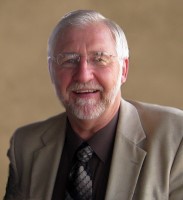
-
David Reed
- Professor Emiritus
- Office:
- HFSB 408
- Email:
- [email protected]
- Phone:
- (979) 321-7035
Education
- Undergraduate Education
- B.S. Horticulture, University of Louisiana - Lafayette
- Graduate Education
- M.S. Floriculture and Ornamental Horticulture, Cornell University
- Ph.D. Floriculture and Ornamental Horticulture, Cornell University
Professional Summary
David Reed, Ph.D., is a professor of horticulture in the Department of Horticultural Sciences at Texas A&M University. He is also the Associate Dean for Graduate Programs and Faculty Development in the College of Agriculture and Life Sciences. He obtained his B.S. degree from the University of Southwestern Louisiana (now called University of Louisiana – Lafayette) in Lafayette, LA. He received both his Masters and Doctor of Philosophy degrees from Cornell University. He has been on the faculty at Texas A&M University since 1978, and has a joint teaching and research appointment.
Reed’s research ranges from basic to applied and primarily focuses on nutrition, especially iron nutrition, and the effects of water quality and salinity on greenhouse crops. His research findings are routinely published in the scientific literature. However, his “first love” is teaching, and he teaches to a packed house of several hundred students each semester in his General Horticulture course. As an extension of his desire to teach, he has presented over seventy talks at various industry and professional meetings throughout the country. Reed’s presentations incorporate demonstrations and workshops so the participants take home “how to” as well as “academic” knowledge. He is the Co-Author and Editor of Water Media and Nutrition for Greenhouse Crops, Ball Publishing.
“Learning and wanting to learn is contagious. I must walk into the classroom with a solid knowledge base and a level of excitement and interest in the subject matter that it makes the students want to learn. The students must perceive that I want to be there, and there is no other place I would rather be. At the graduate level my goal is to create an academic environment that allows graduate students to reach their maximum potential. Sometimes this means’ spoon feeding’ to get them started, but at other times this means removing structured guidance to allow development of independence and originality.“